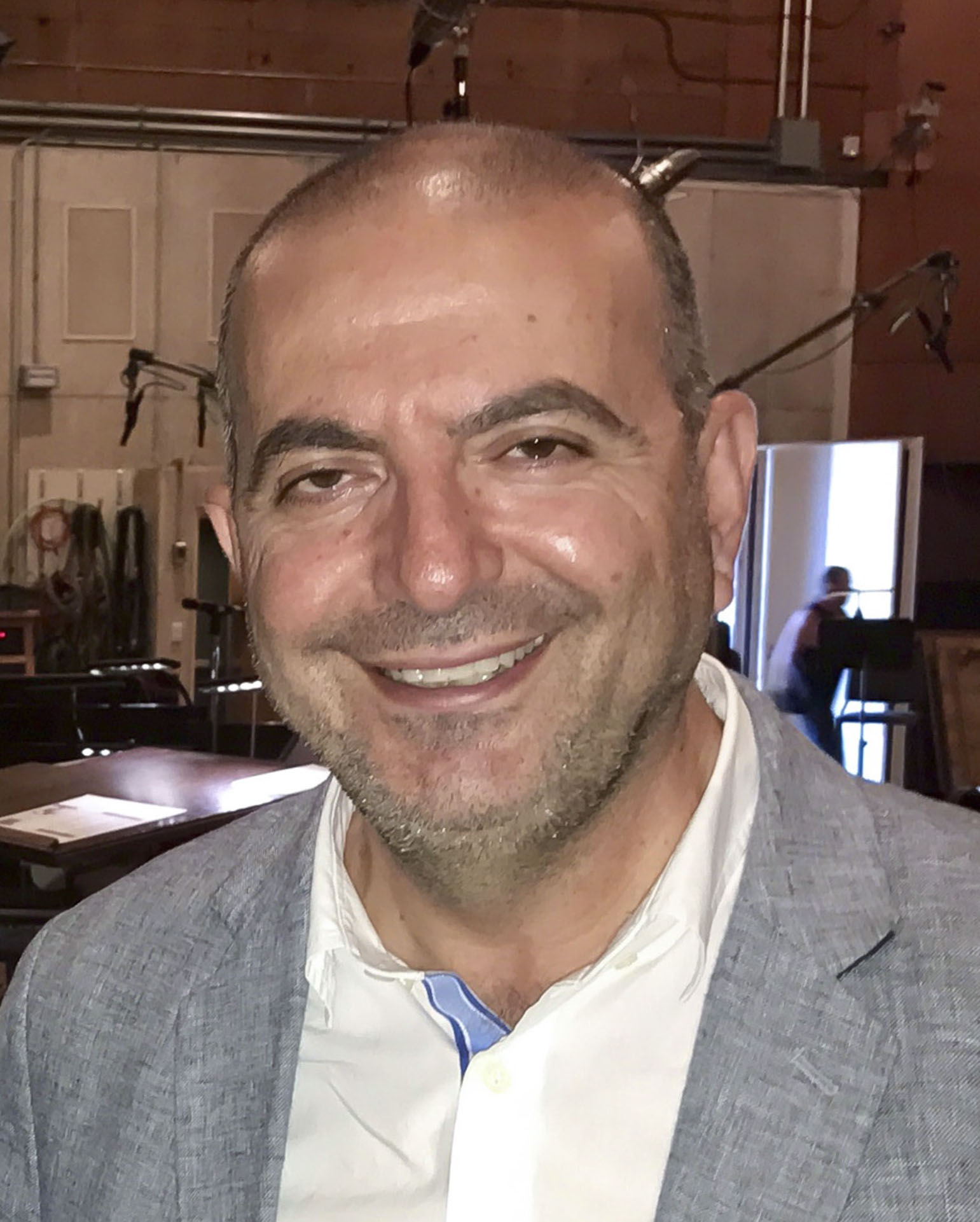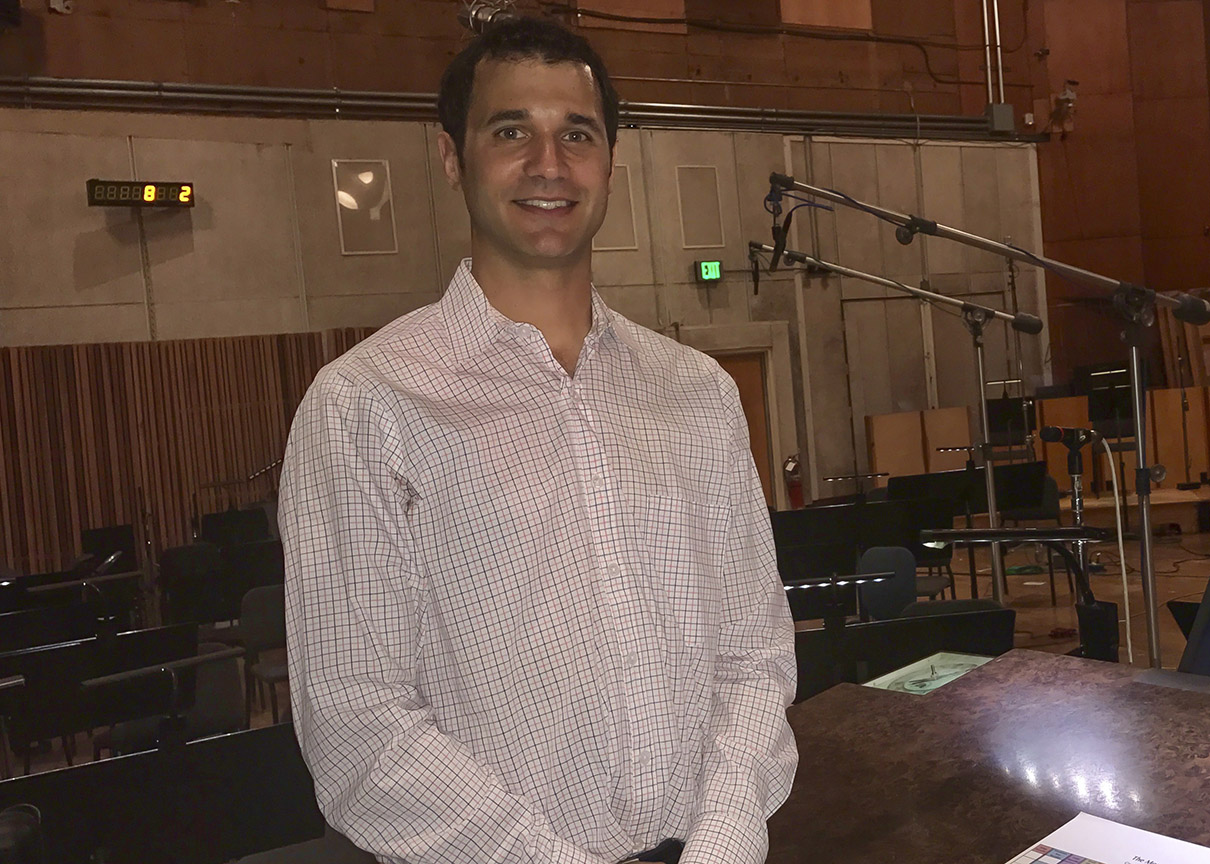
- Music
Game of Thrones Composer Creates Music for a ‘Mountain’
It felt like an offer that you can’t refuse: an invitation to the final day of the live scoring of the film The Mountain Between Us at the Newman Scoring Stage, on the Fox Studios backlot. The composer? Wiz kid Ramin Djawadi, who gave us the unforgettable signature and the dramatic soundtrack of Game of Thrones.
The film director? Golden Globe winner Hany Abu-Assad, best foreign film, Paradise Now, 2005.
The atmosphere at the Newman Studios is intense. The emotions are high as a violin solo flies over some minor-key notes that enhance the beautiful work of the full orchestra of sixty musicians. In the spacious mixing boot, various engineers are at work. Friends and relatives are sitting or standing in the shade of the soundproofed walls. They smile, visibly enjoying this final day of production.

Director Hany Abu-Assad, Golden Globe winner, at the Newman Scoring Stage, 20th Century Fox Studios
hfpa/armando gallo
A story of survival, from the heart
Kate Winslet and Idris Elba star in The Mountain Between Us, a story of survival, after a plane crash that leaves their characters stranded and alone in the deep snow of the high peaks of the Rockies.
The music being recorded right now will run over the end credits and, after a few amazing takes, a heartfelt applause marks the end of the session. And the end of the movie, a $70 million production that should confirm Hany Abu-Assad as one of the most unusual directors to be trusted by a big studio in Hollywood after a string of original independent foreign movies.
For someone who was born in Nazareth and grew up in hot and dry Palestine, to shoot in the snow must have been a difficult challenge. “And it was. Never dealt with snow in my life”, said the director. “We found some breath-taking locations in British Columbia, and I felt committed to shoot on locations.”
“How does it feel today, to be at the end of this project?” we asked him as he moved away from the spot where he had been kind of transfixed as he supervised the live scoring, beaming joy to all of us.
“I am very excited. It’s all from the heart,” he answered with a voice broken by emotion. “This movie is from the heart. But it’s sad also. When you finished, according to me a beautiful thing, at the end you feel satisfied but also sad. To work with big stars, a big studio, big producer. I feel privileged also to have a movie scored. I never had a movie scored before and working with Ramin, as a talent, it feels like he is not just helping, he is elevating the scenes He gave the movie a shine that I didn’t see before.”

Composer Ramin Djawadi at the Newman Scoring Stage, 20th Century Fox Studios
hfpa/armando gallo
Making music by breaking rules
Ramin Djawadi is a young looking man of 43. Born in Germany, the son of an Iranian father and a German mother, he was always into music. He was four years old when he went to the piano in his home and played the theme of a television show. “I played it by ear,” he said. “As it came on TV and my parents looked at each other and said, we must get him some piano lessons. They told me that just a couple of years ago,” Ramin told us.
The musicians of the orchestra – strings, French horns, concert flutes, piano, acoustic guitar and vibraphone – had quickly left and Ramin was still on the podium collecting his sheet music. “I am still astounded of their talent. They sat down, played the music for the first time and we were all ready to record,” he whispered.
What is the first rule for a successful film composer, we wondered? “I went to music school and the Berklee College of Music and I learned all the rules, “ he said. “And then I had a great teacher who said learn it all so that you can forget it all.” He added with a cheeky smile. “So when I write I try not to think about any rules or any specifics and I just try to write what I think is right for the project and what I think is emotionally right. And I see music in colors…”